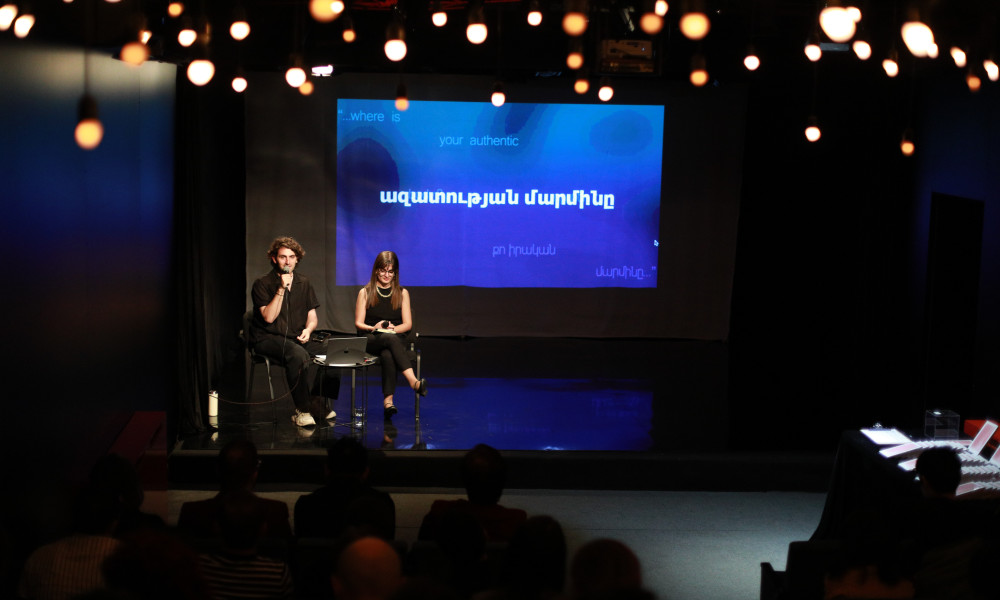“Where is your authentic body?" This question laid the foundation for the presentation of the CSN Lab's latest research project on memory studies—Memory of the Body: Analysing the Representation of the Body in Contemporary Armenian Culture and Art. The presentation took place on September 29th at the Small Theater in Yerevan.
The Memory of the Body examines the representation of the body in contemporary visual and performative art in Armenia. By studying how the body is reflected in culture and art, this project creates a multi-layered mosaic of its meanings within the social and political context of the past and analyses the cultural memory that accumulates around it.
The presentation commenced with a welcome speech by the book's editor, Tigran Amiryan, who provided an overview of the CSN Lab's activities, with particular emphasis on recent projects on memory studies. Amiryan then addressed the project's concept, detailing the methodology, timeframe, and theoretical foundations of the research.
Next, Hripsime Kizogyan, a representative of the Pink human rights defender NGO which supported the implementation of the Memory of the Body research, delivered her speech. Kizogyan spoke about the long-standing, successful cooperation between CSN Lab and Pink, specifically pointing out the Queer Memory in Armenia project implemented two years ago. Besides, she noted the importance of the research in ensuring that marginalised communities and groups are heard, and contribute to the public discourse.
Following the introduction, the authors of the book, Arsen Abrahamyan and Mariam Yeghiazaryan, presented their work. The two provided a brief overview of the research structure and emphasised the main thematic aspects of the study. The authors examined several key issues in their work, focusing on the body’s plurality as a container for diverse events, identities, characteristics, and symbolic systems.
Abrahamyan and Yeghiazaryan also discussed the political dynamics surrounding the body in the Soviet Union and the impact of alternative culture and art during that time. Moving into the post-Soviet period, researchers analysed the reinterpretation of the Soviet past, the emergence of gender and feminist issues through art and culture, as well as the decolonization and demilitarization of the body, alongside themes of nudity and the liberalisation of the body.
In his closing remarks, Tigran Amiryan underscored the necessity of decentralising memory studies, particularly emphasising the significance of cultural memory in cultivating a more transparent, comprehensive public discourse.
At the end of the presentation, attendees had the opportunity to acquire the Memory of the Body book and ask questions to the editor-in-chief and the authors. The book is available at the CSN Lab’s office and partner organisations. It will soon be accessible on our website and at other cultural institutions, resource centres, and libraries.
The “Memory of the Body: Analysing the Representation of the Body in Contemporary Armenian Culture and Art” project has been implemented by the “Cultural and Social Narratives Laboratory” (CSN Lab) with the financial support of the “Pink” human rights defender NGO and Sweden.

